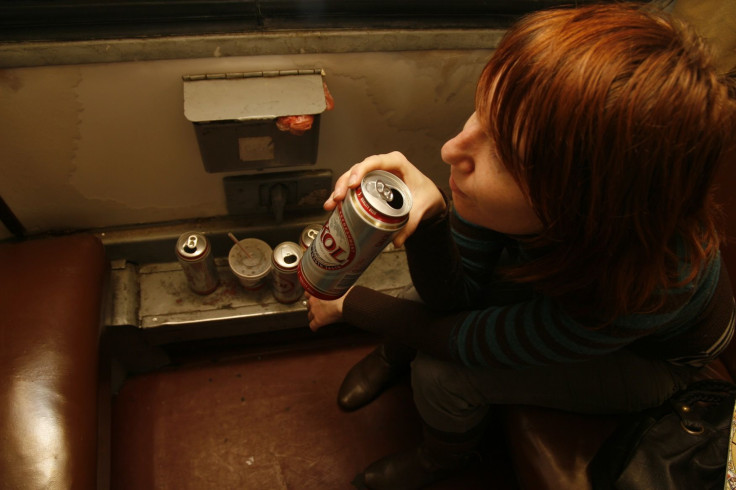Drunkorexia: The Folly Of Skipping Meals To Save Room For Booze

Drunkorexia: The practice of skipping food in favor of alcohol. For many young women and men, the “pre-gaming” routine of a night on the town may sound familiar. A limited or light lunch fare. Stimulating beverages, such as coffee or tea. Waiting. Phone calls. A text. Finally, another drink. By consuming fewer calories from nutritious food, you’ve saved more room for a fleeting moment of intoxication. It comes in waves, 550 calories each. Later, a lite beer with 150 calories. Maybe skip the cigarette this time. Vodka and Redbull for the pros.
Younger women are most prone to “drunkorexia,” says David Herber, a medical professor at the University of California, Los Angeles, specializing in nutrition. “Many cocktails popular with young women, such as margaritas, have lots of calories,” he said in an interview with the Los Angeles Times on Friday. So they will skip meals in order to “get their calorie allowance in alcoholic drink.”
Pairing alcohol abuse with dieting behaviors could also entail alcohol-fueled food binges, when most people who are drunk normally eat food. Analogous to bulemia, people with alcohol-related disordered eating may also take laxatives or exercise to compensate for increased calories from beer, wine, and spirits, according to Adam E. Barry, assistant professor at the University of Florida Department of Health Education and Behavior.
Barry classifies drunkorexia as disordered eating, as opposed to classical clinical eating disorders such as anorexia or bulimia. “I think there are different ways it is exemplified between men and women,” Barry told reporters. “Women skip meals due to drinking, while men tend to exercise in order to offset the calories from drinking.” Barry says the behavior may peak during the college-aged years.
In a study of 22,000 college students, Barry and his colleagues say those who dieted or exercised to control weight were over 20 percent more likely to consume five or more alcoholic drinks in a sitting. Moreover, those who vomited or used laxatives to control weight were 76 percent more likely to engage in binge drinking.
David Jernigan, director of the Center on Alcohol Marketing and Youth at Johns Hopkins University, says advertising for alcoholic beverages conveys a “fitness friendly” image devoid of any sense of consequence. In this way, the massive domestic market for alcoholic beverages exists in harmony with the $61 billion diet and weight loss market.
Scientists say people might chase intoxication at the expense of nutritious food in order to shut off emotive thought, at times. Susan Albers, a psychologist and author of books about “mindful eating,” told the Los Angeles Times that people use food and beverage for various psychological reasons. “The binge eating or drinking numbs or turns off that feeling, so they aren’t feeling it in that moment,” Albers said. “The difficulty is when they are done eating or restricting food, or have consumed substances, those feelings come back.”
Aside from the inherent dangers of alcohol abuse, fasting lowers blood sugar levels and causes cravings for sugary foods high in carboyhdrates, as well as for more alcohol.
Sourc: Barry AD, Piazza-Gardner AK. Drunkorexia: Understanding the Co-occurrence of Alcohol Consumption and Eating/Exercise Weight Management Behaviors. Journal of American College Health. 2011.
Published by Medicaldaily.com



























